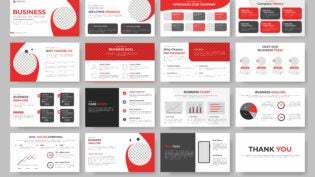
With products/items that extend beyond the hundreds of millions, e-commerce websites are indeed a hub of information. Each with its own product description, reviews, and price information (or, more concisely, a personalized product information page), the sheer number of items means heightened competition for the sellers.
However, it can be a source of insight-rich data that online businesses can use to maintain a competitive edge. And this is where e-commerce web scraping and, by extension, the use of static vs. rotating proxies comes in.
What Is E-Commerce Web Scraping?
E-commerce scraping refers to using bots or software known as web scrapers to extract data from product information pages on e-commerce sites. The process can entail anything from collecting data on the seller’s name, the products they offer, and the prices to extracting data on ratings and reviews. In addition, this data extraction process can also reveal high-ranking keywords that are used in product descriptions. After all, product pages can be crawled and indexed by search engine crawlers. As a business owner, you can then use this information in various ways.
Uses of E-Commerce Web Scraping
Knowledge of the products offered by various sellers is a form of market research. In this regard, you can utilize e-commerce web harvesting to establish the number of unique sellers selling either a particular item or multiple items across the same product category. This information is insightful in that it allows you to establish whether a given market or category is saturated or still needs a few more sellers or products.
Similarly, pricing data enables you to come up with competitive prices for your products. Simply put, it helps you create a pricing strategy. At the same time, e-commerce web scraping that is geared towards extracting data from reviews, which is known as review monitoring, lets you in on what customers are looking for. Armed with this information, you can tailor your product to meet their needs, ultimately guaranteeing customer satisfaction.
In addition, e-commerce scraping offers search engine optimization (SEO)-related advantages. For example, you can infuse the high-ranking keywords into your product descriptions. Doing so can potentially increase the chances of your products ranking high on the e-commerce site as well as search engine results pages (SERPs).
Challenges of E-Commerce Web Scraping
However, while many benefits abound, e-commerce is not without a litany of challenges. In the same way bots boast advanced web scraping capabilities, so too have websites evolved and improved over the years to counter and reduce the effectiveness of web scrapers.
The challenges of e-commerce scraping include the following:
- Built-in anti-scraping techniques such as CAPTCHA puzzles, IP address blocks and bans, headers, and User agents
- Complex and varying page structures: the product information pages vary from one product to another
- Dynamically changing webpages: most e-commerce websites use AJAX (Asynchronous JavaScript and XML), which is meant to update the webpage by retrieving data from the web server without interfering with what has been displayed. This comes in handy when a user is scrolling down the page, for example. While it improves the experience for human users, it is not bot-friendly
- Ability to easily detect actions initiated by scrapers: E-commerce sites achieve this by checking query parameters in the URLs (bots typically only change the query parameter at somewhat of a regular interval), the headers, and the intervals between requests
How to Successfully Scrape E-Commerce Websites
To successfully extract data from e-commerce sites, you must work around the challenges mentioned above. But how can you go about this? Firstly, you must use a reliable web scraper from a reliable proxy provider. A good e-commerce scraper can scrape multiple pages at once (increasing the speed of the data extraction), render JavaScript-heavy e-commerce sites, and provide structured ready-to-use data. In addition, these bots can extract data from almost any location.
The secret of the success of reliable web scrapers lies in their use of proxies. A proxy is an intermediary that provides online anonymity by masking the real IP address and assigning a new identifier. In this way, the proxy creates an illusion that you are located in a different country while, in fact, you are not. A reputable scraper provider has a pool of IP addresses.
In addition, the provider uses rotating proxies to periodically change the assigned IP address, which makes it appear as though the requests are originating from different users. This underscores the main difference between static vs. rotating proxies – static proxies do not change the assigned IP address. If you want to learn the difference with all the peculiarities of these two proxies, click here.
Conclusion
The success of e-commerce web scraping partly lies in whether or not you use static vs. rotating proxies. Using rotating proxies guarantees success by making it appear as though the scraping requests are originating from different users. Other factors that promote success include using a web scraper from a reputable service provider.
1725 Views














